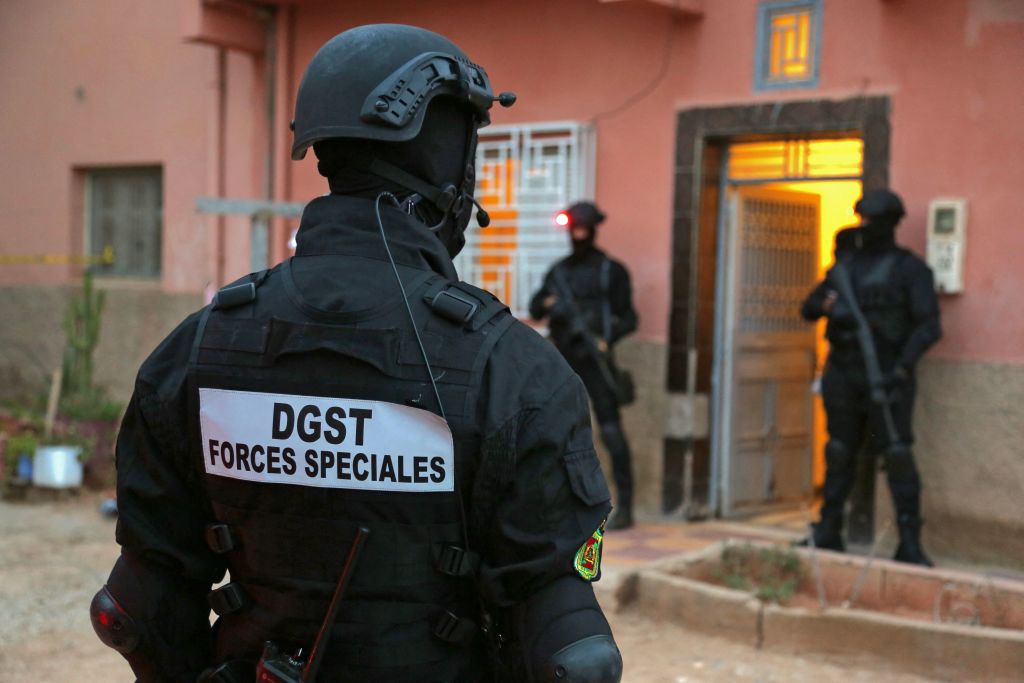Faced with a rapidly evolving security threat environment, Morocco is reshaping its intelligence strategy with an eye toward the future.
A new report by the R.O.C.K. Institute for Geopolitical and Security Studies examines the rising threat from artificial intelligence and terrorist groups. It recommends a multipronged approach to addressing those threats while also protecting human rights within the kingdom.
Morocco’s intelligence agencies face multidimensional threats, according to the report’s author, Kamal Akridiss, who founded the R.O.C.K. Institute in 2024. R.O.C.K. is an English-language acronym for Research, Observation & Critical Knowledge.
Those multidimensional threats combine physical, digital, informational and financial dimensions, Akridiss notes in his report, which can be found on the R.O.C.K. Institute’s LinkedIn page and website.
“This convergence requires a rethinking of both operational capabilities and the legal framework that governs them,” he wrote.
Between 2002 and 2022, Morocco dismantled more than 2,000 terrorist operations. The country’s foreign and domestic intelligence agencies have focused most of their attention on physical threats, but now they are facing a rising tide of digital threats, including cyberattacks targeting vital infrastructure, economic espionage and deepfakes of political figures.
“Since the 2000s, threats have become more complex, rapid, and transnational, which requires a permanent adaptation,” Akridiss wrote. “In an interconnected world, intelligence must evolve at the same speed as technology and threats.”
Akridiss urged Morocco to continue to update its intelligence methods and the legal framework that guides them to keep up with those evolving threats. Those updates would build on the counterterrorism legal structure Morocco put in place after the 2003 terror attack on the Jewish Center in Casablanca, which killed 45 people and injured hundreds more.
The Casablanca attack led to Law 03-03, the country’s foundational anti-terrorism law that criminalizes promoting or inciting terrorism through a variety of methods, including public speeches, published writings and online content. It also bans assisting in terrorist acts.
In the years after, Morocco added new laws allowing surveillance of electronic transactions and steps to protect online privacy and personal information. It also suffered more attacks, such as the 2011 bombing of a marketplace in Marrakech that killed 14 people.
Akridiss’ recommendations include using AI to sift through huge amounts of public information online to detect potential security threats.
He notes, however, that AI is a double-edged sword that terrorists can just as easily wield against Moroccan society through deepfakes, disinformation campaigns, and cyberattacks against individuals and institutions.
Among other recommendations are:
- Adopt a legal framework for intelligence-gathering that clarifies the legitimate purposes for the information collected, the methods for collecting it, and the authority that controls it.
- Modernize the criminal code to introduce a digital chain of custody to avoid having evidence challenges in cases involving transnational crime.
- Define guidelines for critical infrastructure sectors, such as energy, transport, health and finance, and organize yearly cyberthreat exercises involving the intelligence services.
“This modernization does not only respond to technical or diplomatic imperatives. It constitutes a strategic investment in the legitimacy, credibility and resilience of Morocco,” Akridiss wrote in his report.
Morocco’s intelligence services are at the heart of the country’s plan to confront the evolving threats in 2030 and beyond, he wrote, adding: “The challenge will be to maintain a high level of operational efficiency while operating within an evolving legal framework that guarantees fundamental rights and national confidence.”

